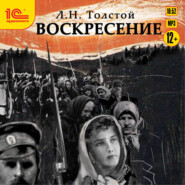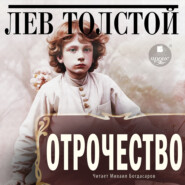По всем вопросам обращайтесь на: info@litportal.ru
(©) 2003-2024.
✖
The Power of Darkness
Настройки чтения
Размер шрифта
Высота строк
Поля
ANÍSYA. Ah, I'm driven well-nigh crazy. It's awful!
MATRYÓNA. Well, still alive, I hear?
ANÍSYA. Oh, don't talk about it. He doesn't live and doesn't die!
MATRYÓNA. But the money – has he given it to anybody?
ANÍSYA. He's just sending for his sister Martha – probably about the money.
MATRYÓNA. Well, naturally! But hasn't he given it to any one else?
ANÍSYA. To no one. I watch like a hawk.
MATRYÓNA. And where is it?
ANÍSYA. He doesn't let out. And I can't find out in any way. He hides it now here, now there, and I can't do anything because of Akoulína. Idiot though she is, she keeps watch, and is always about. Oh my poor head! I'm bothered to death.
MATRYÓNA. Oh, my jewel, if he gives the money to any one but you, you'll never cease regretting it as long as you live! They'll turn you out of house and home without anything. You've been worriting, and worriting all your life with one you don't love, and will have to go a-begging when you are a widow.
ANÍSYA. No need to tell me, mother. My heart's that weary, and I don't know what to do. No one to get a bit of advice from. I told Nikíta, but he's frightened of the job. The only thing he did was to tell me yesterday it was hidden under the floor.
MATRYÓNA. Well, and did you look there?
ANÍSYA. I couldn't. The old man himself was in the room. I notice that sometimes he carries it about on him, and sometimes he hides it.
MATRYÓNA. But you, my lass, must remember that if once he gives you the slip there's no getting it right again! [Whispering] Well, and did you give him the strong tea?
ANÍSYA. Oh! oh!.. [About to answer, but sees neighbour and stops].
The neighbour (a woman) passes the hut, and listens to a call from within.
NEIGHBOUR [to Anísya] I say, Anísya! Eh, Anísya! There's your old man calling, I think.
ANÍSYA. That's the way he always coughs, – just as if he were screaming. He's getting very bad.
NEIGHBOUR [approaches Matryóna] How do you do, granny? Have you come far?
MATRYÓNA. Straight from home, dear. Come to see my son. Brought him some shirts – can't help thinking of these things, you see, when it's one's own child.
NEIGHBOUR. Yes, that's always so. [To Anísya] And I was thinking of beginning to bleach the linen, but it is a bit early, no one has begun yet.
ANÍSYA. Where's the hurry?
MATRYÓNA. Well, and has he had communion?
ANÍSYA. Oh dear yes, the priest was here yesterday.
NEIGHBOUR. I had a look at him yesterday. Dearie me! one wonders his body and soul keep together. And, O Lord, the other day he seemed just at his last gasp, so that they laid him under the holy icóns.[1 - It is customary to place a dying person under the icón. One or more icóns hang in the hut of each Orthodox peasant.] They started lamenting and got ready to lay him out.
ANÍSYA. He came to, and creeps about again.
MATRYÓNA. Well, and is he to have extreme unction?
ANÍSYA. The neighbours advise it. If he lives till to-morrow we'll send for the priest.
NEIGHBOUR. Oh, Anísya dear, I should think your heart must be heavy. As the saying goes, “Not he is sick that's ill in bed, but he that sits and waits in dread.”
ANÍSYA. Yes, if it were only over one way or other!
NEIGHBOUR. Yes, that's true, dying for a year, it's no joke. You're bound hand and foot like that.
MATRYÓNA. Ah, but a widow's lot is also bitter. It's all right as long as one's young, but who'll care for you when you're old? Oh yes, old age is not pleasure. Just look at me. I've not walked very far, and yet am so footsore I don't know how to stand. Where's my son?
ANÍSYA. Ploughing. But you come in and we'll get the samovár ready; the tea'll set you up again.
MATRYÓNA [sitting down] Yes, it's true, I'm quite done up, my dears. As to extreme unction, that's absolutely necessary. Besides, they say it's good for the soul.
ANÍSYA. Yes, we'll send to-morrow.
MATRYÓNA. Yes, you had better. And we've had a wedding down in our parts.
NEIGHBOUR. What, in spring?[2 - Peasant weddings are usually in autumn. They are forbidden in Lent, and soon after Easter the peasants become too busy to marry till harvest is over.]
MATRYÓNA. Ah, now if it were a poor man, then, as the saying is, it's always unseasonable for a poor man to marry. But it's Simon Matvéyitch, he's married that Marína.
ANÍSYA. What luck for her!
NEIGHBOUR. He's a widower. I suppose there are children?
MATRYÓNA. Four of 'em. What decent girl would have him! Well, so he's taken her, and she's glad. You see, the vessel was not sound, so the wine trickled out.
NEIGHBOUR. Oh my! And what do people say to it? And he, a rich peasant!
MATRYÓNA. They are living well enough so far.
NEIGHBOUR. Yes, it's true enough. Who wants to marry where there are children? There now, there's our Michael. He's such a fellow, dear me …
PEASANT'S VOICE. Hullo, Mávra. Where the devil are you? Go and drive the cow in.
Exit Neighbour.
MATRYÓNA [while the Neighbour is within hearing speaks in her ordinary voice] Yes, lass, thank goodness, she's married. At any rate my old fool won't go bothering about Nikíta. Now [suddenly changing her tone], she's gone! [Whispers] I say, did you give him the tea?
ANÍSYA. Don't speak about it. He'd better die of himself. It's no use – he doesn't die, and I have only taken a sin on my soul. O-oh, my head, my head! Oh, why did you give me those powders?
MATRYÓNA. What of the powders? The sleeping powders, lass, – why not give them? No evil can come of them.
ANÍSYA. I am not talking of the sleeping ones, but the others, the white ones.

















